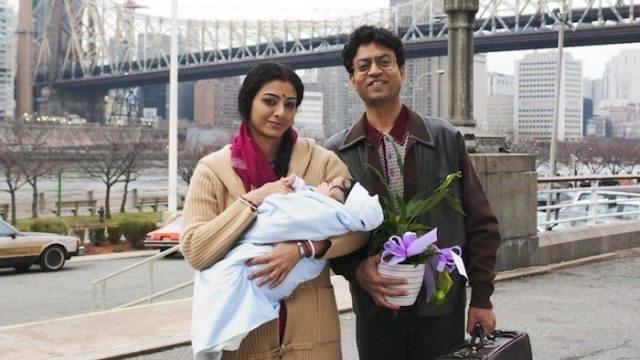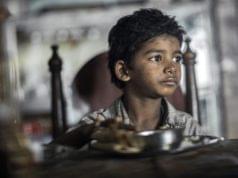
Now, who expected this? Kal Penn, best known for his roles in lowbrow comedies like the “Van Wilder” films, “Epic Movie,” and “Harold & Kumar Go to White Castle” (he played Kumar), shows surprising range and emotion in “The Namesake.” The film is often light, but it’s not a comedy, strictly speaking, and it’s nothing close to the broad farce Penn has been a party to in the past. And it doesn’t seem like he’s showing off, either: He’s really just a good, quiet actor.
The film is a respectable entry from Bollywood director Mira Nair (“Monsoon Wedding”), whose last film, “Vanity Fair,” was all about Westernism. “The Namesake” is a return to her roots, telling the story (adapted by Sooni Taraporevala from Jhumpa Lahiri’s novel ) of an American-born Indian man trying to connect with his family and their heritage. It’s about the clash between East and West, only the clash happens within a person rather than in a family or a community.
We begin in the late 1970s, with the traditional marriage of Ashoke Ganguli (Irfan Khan) and Ashima (single-named actress Tabu) in Calcutta. Ashoke has been living in New York and working on his Ph.D. in fiber optics, while Ashima — whom he has barely met before they are put together by their families — has never left India.
Ashima goes back to New York with her new husband, of course, and finds the city cold, bleak, and terrible. (Frederick Elmes’ dismal cinematography underscores Ashima’s loneliness to great effect.) But she adjusts, and she and Ashoke grow to love each other, and the marriage works.
Their first child, a boy, is given the temporary name of Gogol, after the Russian author Nikolai Gogol. Tradition dictates that Ashima’s grandmother choose the baby’s “good” name, though by the time she does, “Gogol” has taken root. It is only when Gogol the boy gets tired of people making fun of his name that he switches to Nick, an Americanized version of his “good” name, Nikhil.
Gogol isn’t a family name, of course, but it wasn’t given to him randomly, either. The author was Ashoke’s favorite, and an early inspiration to him when Ashoke was a young man, particularly in a flashback incident depicted at the beginning of the film. Gogol’s renouncement of it stings a little.
Gogol (played by Kal Penn as an adult) goes on to be a good student, and the focus of the film shifts to him as he navigates his way through adulthood. He has an all-American WASP girlfriend, Maxine (Jacinda Barrett), who doesn’t even try to respect his parents’ Old World ways, blithely and prettily acting like everyone she meets is bound to act just like her. Gogol’s parents’ attempts to foist on him an Indian girl, Moushumi (Zuleikha Robinson), fail — at least at first.
The film has a wonderful sequence in which Gogol’s family travels to India. He and his teenage sister, Sonia (Sahira Nair), are in awe at the country’s differences with America, and doubly in awe to realize that this is essentially who they are. Their parents have lived in both worlds and have a firm understanding of both cultures. The kids have only ever known Americanism, learning about Indian ways only secondhand.
It is unconventional, to say the least, for a film to switch protagonists the way this one does, moving its attention from Ashoke and Ashima in the first half to Gogol in the second. Yet the bold narrative move was clearly the right decision. Had the parents’ story been compressed into a few early scenes so that Gogol could take center stage for the bulk of the film, we wouldn’t have fully understood their influence on Gogol, or why their previous lives matter so much. By getting to know them not as “the hero’s parents” but as important characters in their own right, we’re able to feel their influence even when the film is no longer about them.
The Indian actors Irfan Khan and Tabu deliver sweet, tenderhearted performances as Gogol’s parents, fully justifying the attention paid to them in the first half. In particular, Ashima’s strength, inner peace, and dignity in adapting to American life and trying to instill values in her children is poignant. Tabu has appeared in some 60 films in India, but American audiences have been deprived of her radiant beauty until now.
And then we come back to Kal Penn. His performance isn’t breathtaking or anything, but it’s solid and deep and serious. I know little about the actor himself, except that he was born in the United States to Indian parents. I don’t know how much of his role he was able to base on personal feelings; for all I know, the performance is entirely fictional for him. Either way, it’s a good cornerstone to a good, worthwhile film.
B (2 hrs., 2 min.; )





